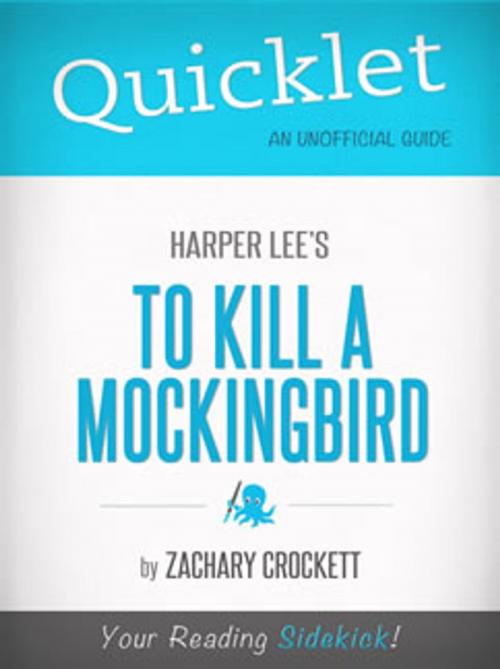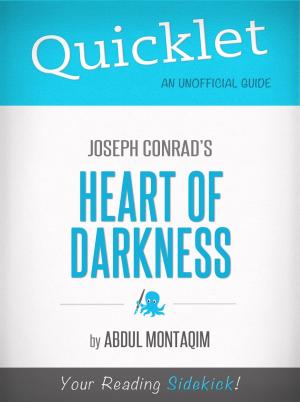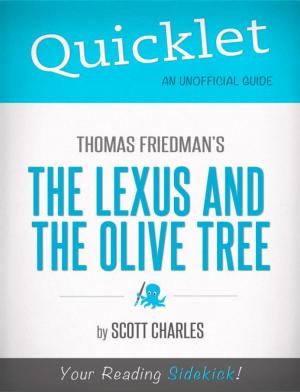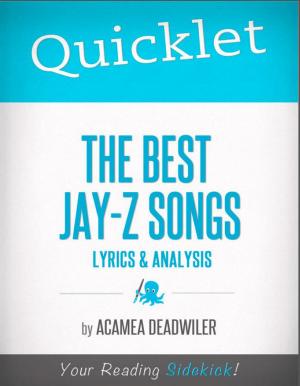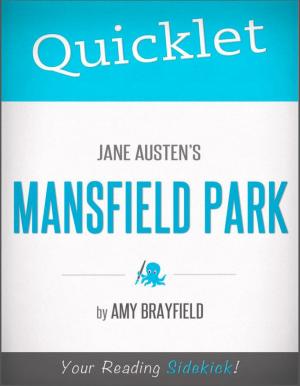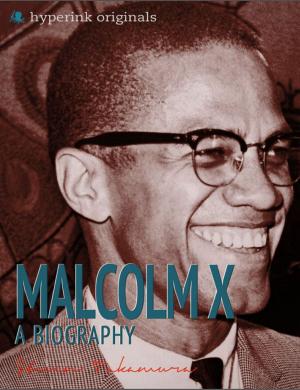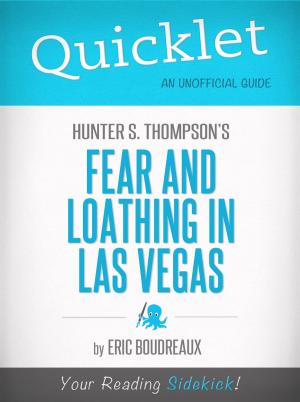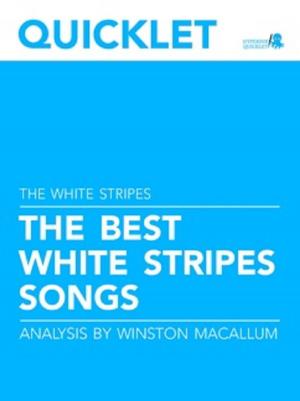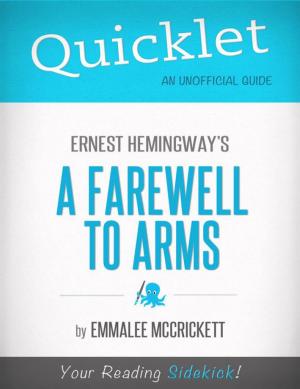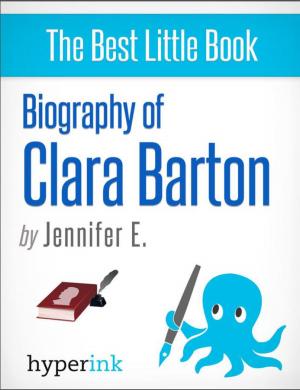Quicklet on To Kill a Mockingbird by Harper Lee (Book Review & Analysis)
Nonfiction, Reference & Language, Study Aids| Author: | Zachary Crockett | ISBN: | 9781614643425 |
| Publisher: | Hyperink | Publication: | January 5, 2012 |
| Imprint: | Language: | English |
| Author: | Zachary Crockett |
| ISBN: | 9781614643425 |
| Publisher: | Hyperink |
| Publication: | January 5, 2012 |
| Imprint: | |
| Language: | English |
Quicklets: Learn more. Read less.
Harper Lee published To Kill a Mockingbird in 1960. Shortly thereafter, the book won the Pulitzer Prize and is now known as one of the greatest books ever written, selling over 30 million copies in 18 languages. The immediate fame the book achieved came as a shock to Lee, who never relished being in the spotlight.
Much of Lees novel is drawn from real events from her childhood in Monroeville, Alabama, during the Great Depression. As such, the racial and moral undertones of the book provide a very realistic portrait of southern life in the 1930s.
The books hero, Atticus Finch, is lauded as one of the great fictional moralists a man who not only fought racial injustice, but defended his family through it all refused to compromise any of his values or integrity.
Today, To Kill a Mockingbird is among the most commonly assigned books in high school English classes and seldom raises concerns over the controversial subjects it addresses. It has, to this day, never been out of print and has remained Harper Lees one and only novel.
BOOK EXCERPT
From the Introduction by Zachary Crockett:
How To Kill A Mockingbird Encouraged My Musical Career
The first time I read Harper Lees masterpiece, I was a naive, bright-eyed high school freshman intent on ignoring any type of school-related summer assignment. Instead, I preferred to lose myself in small creative worlds: I acted, painted, and went for long runs through the rolling hills of Woodside, California. The last thing I wanted to do was open the cover of my moms old, musty copy of To Kill a Mockingbird. But summer soon drew to a close, and I, along with the rest of the incoming class, had to accept my fate and begin to tackle the long list of books I was required to read.
And read I did: a half-day later, I found myself midway through the book, and the following day, I read through its final passage, wishing that the book, along with that summer, would never end.
...To be continued!
Quicklets: Learn more. Read less.
Quicklets: Learn more. Read less.
Harper Lee published To Kill a Mockingbird in 1960. Shortly thereafter, the book won the Pulitzer Prize and is now known as one of the greatest books ever written, selling over 30 million copies in 18 languages. The immediate fame the book achieved came as a shock to Lee, who never relished being in the spotlight.
Much of Lees novel is drawn from real events from her childhood in Monroeville, Alabama, during the Great Depression. As such, the racial and moral undertones of the book provide a very realistic portrait of southern life in the 1930s.
The books hero, Atticus Finch, is lauded as one of the great fictional moralists a man who not only fought racial injustice, but defended his family through it all refused to compromise any of his values or integrity.
Today, To Kill a Mockingbird is among the most commonly assigned books in high school English classes and seldom raises concerns over the controversial subjects it addresses. It has, to this day, never been out of print and has remained Harper Lees one and only novel.
BOOK EXCERPT
From the Introduction by Zachary Crockett:
How To Kill A Mockingbird Encouraged My Musical Career
The first time I read Harper Lees masterpiece, I was a naive, bright-eyed high school freshman intent on ignoring any type of school-related summer assignment. Instead, I preferred to lose myself in small creative worlds: I acted, painted, and went for long runs through the rolling hills of Woodside, California. The last thing I wanted to do was open the cover of my moms old, musty copy of To Kill a Mockingbird. But summer soon drew to a close, and I, along with the rest of the incoming class, had to accept my fate and begin to tackle the long list of books I was required to read.
And read I did: a half-day later, I found myself midway through the book, and the following day, I read through its final passage, wishing that the book, along with that summer, would never end.
...To be continued!
Quicklets: Learn more. Read less.
